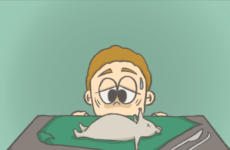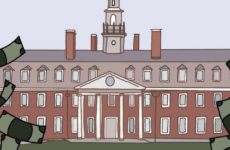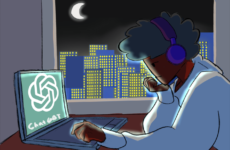Most of us have heard about the Committee on Student Activities, or COSA. That being said, very few people outside of club leadership and the organization itself know how it functions. After consulting the handbook, I feel that the role of COSA has primarily been defined by those in the committee, not by any actual doctrine or recommendation from any powerful entity at Choate. COSA has taken unnecessary action by excessively policing clubs and arbitrarily creating requirements for leaders to fulfill in order to receive recognition.
Before I arrived at Choate, COSA was hopefully an organization with the intent to help people start and expand clubs, not disband and impose regulations on newfound groups. Unfortunately, the latter has become the ordinary behavior of COSA. Members of COSA should put more effort into assisting clubs. Student Clubs and Organizations, an obscure Webpage, fails to provide any description of the C-Proctors, Maiyeros, and even Student Council. The clubs that do have proper descriptions fail to include contact information for interested students. The responsibility for this lack of information falls ultimately on the clubs themselves, but COSA should make a stronger attempt to resolve this pressing issue.
Unfortunately, COSA seems to prioritize other aimless documentation over this key writing that would help integrate curious students into club life. Despite this oversight of important information, COSA requires all groups to draft a complete constitution that serves no purpose but to satisfy the bureaucratic club system. Clubs will succeed or fail based on the passion of the leaders and students involved, not the ability to draft a proper constitution.
Because of this, I propose that COSA change its requirements for a club to only two stipulations: the club must have at least five active members, and the club must have a unique description of its activities. Following these simple regulations would give students the ability to create more diverse clubs for their peers to enjoy. Ensuring that these clubs have a proper description guarantees not only that there are no duplicated clubs, but also that COSA has a description to publish in its club listing, allowing students to painlessly find clubs they are interested in.
Additionally, COSA should not monitor clubs unless they are requesting funding, aside from ensuring active membership and a unique description. If a club requests funding, COSA should monitor clubs as they see fit. COSA should act as an organization that provides assistance to clubs who seek it. Clubs may need help applying for funding, attracting new members, fundraising, or organizing booths for club fairs, and COSA should be the organization to provide this aid. There is no reason to revoke the official recognition of a club that is not requesting funding if the group has active members and is unique.
Limiting the number of clubs at Choate does nothing but hurt the community by preventing students from finding the interest groups they seek. There is nothing stopping a group of passionate students from organizing on their own and pursuing their passions, but the shortcomings of COSA have inherently made the organization difficult to find for other students who may be interested. COSA must abandon its role as the police of the club life world and instead focus on making clubs more accessible for all students. COSA should better embrace the idea that most clubs are not comprised of bureaucrats intent on running an official organization, but rather just congregations of passionate people that want to enjoy their passions together.




